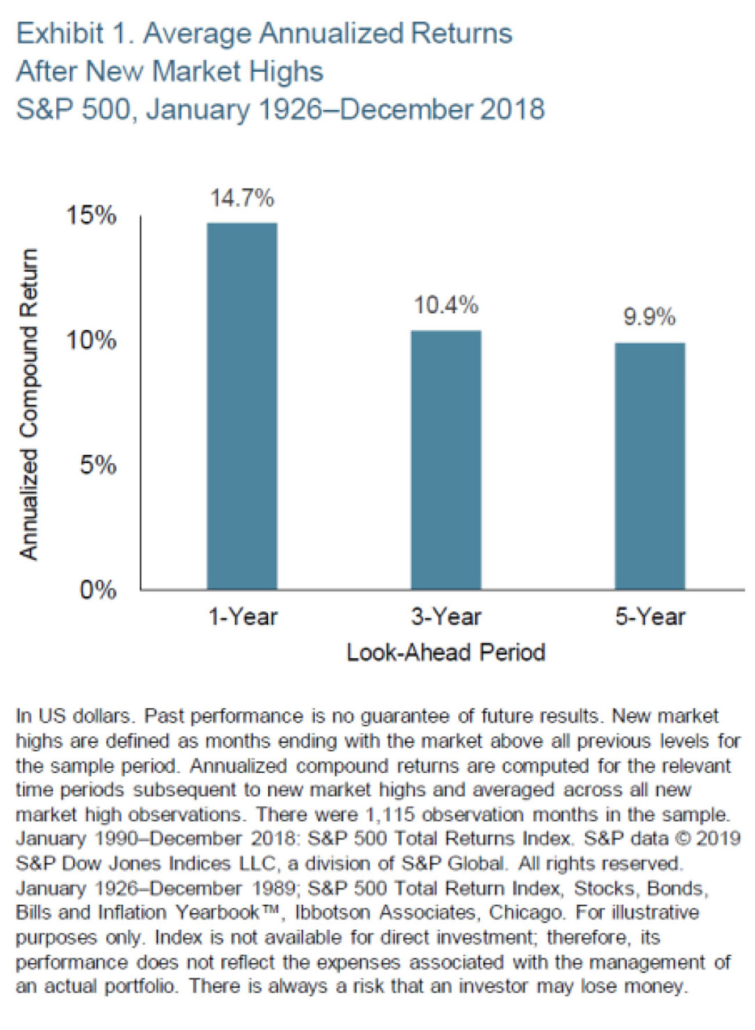The Challenge of Staying Invested
While equities have largely corrected and recovered over the past year, the broad indexes are only slightly higher than they were in early 2018, due to weakness during the fourth quarter. It’s tempting to forget that quarter, given 2019’s domestic equity rally and Fed’s grudgingly accommodative policy. As discussed earlier, we support broad risk adjusted diversification through exposure to long-term market and economic growth.
Attempting to buy individual stocks or make tactical asset allocation changes at exactly the “right” time presents investors with substantial challenges. First and foremost, markets are fiercely competitive and adept at processing information. During 2018, a daily average of $462.8 billion in equity trading took place around the world7. The combined effect of all this buying and selling is that available information, from economic data to investor preferences and so on, is quickly incorporated into market prices. Trying to time the market based on an article from this morning’s newspaper or a segment from financial television? It’s likely that information is already reflected in prices by the time an investor can react to it.
Dimensional Funds recently studied the performance of actively managed US-based mutual funds and concluded that even professional investors have difficulty beating the market: over the last 20 years, 77% of equity funds and 92% of fixed income funds failed to survive and outperform their benchmarks after costs8.
Complicating matters – for investors to have a shot at successfully timing the market, they must make the call to buy or sell stocks correctly not just once, but twice. Professor Robert Merton, a Nobel laureate, said it succinctly in a recent interview with Dimensional: “Timing markets is the dream of everybody. Suppose I could verify that I’m a .700 hitter in calling market turns. That’s pretty good; you’d hire me right away. But to be a good market timer, you’ve got to do it twice. What if the chances of me getting it right were independent each time? They’re not. But if they were, that’s 0.7 times 0.7. That’s less than 50-50. So, market timing is horribly difficult to do.”
We maintain that outguessing markets is more difficult than many investors think. While favorable timing is theoretically possible, the issue remains divisive amongst investors regardless of experience. However, we firmly believe that investors don’t need to time the markets to have a productive investment experience. Over time, capital markets have rewarded investors who have taken a long-term perspective and remained disciplined in the face of short-term noise. By focusing on the things they can control – such as asset allocation, diversification, managing expenses, and taxes; investors can better position themselves to take advantage of opportunities presented by capital markets.





